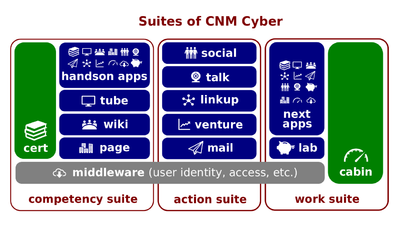What Project Work Is
What Project Work Is (hereinafter, the Lectio) is the lesson part of Project Work Essentials lesson that introduces its participants to project management concepts. This lesson belongs to the CNMCT Entrance section of the CNM Cyber Placement.
Content
The predecessor lectio is Project Work Approaches.
Script
- The aggregate of the work that must be completed to deliver a work product is called project scope. Consequently, project scope is all of the project work.
- Project work can be divided in 4 phases. The initiating phase stops when the need of the project is realized, the source of its budget is identified, and at least one person on each side of the project work is personalized. The planning phase stops when project baselines are approved. The executing phase stops when the customer or customer's representative accepts the work product. The closing phase ends when all the deliverables are delivered and all the payments are made.
- The executing phase is the costliest. In this phase, workers are hired and supplies are purchased.
- For big, costly, and predictable executions, the project work is decomposed and presented as work breakdown structure or WBS. This document may be accompanied by a WBS dictionary, which further describes WBS items and project scope statement, which summarizes WBS and explains why particular works are included.
- In project management, the project scope becomes the scope baseline when and if the customer or customer's representative approves it. Unless the customer or its representative approves something else, a project manager shouldn't start any execution of the project without the baseline.
- Life is life, things happen, and no project can be fully predicted. If any of project baselines cannot be met, a project manager makes a change request for the customer or customer's representative to approve, decline, or modify.
- Similarly, the project phases may or may not be consecutive and overlapping. For instance, if the project manager quits before the project closure, the initiating phase should be re-open even after the executing phase is complete and a new project manager should be appointed. All the phases entirely end when the closing phase ends. If anything is needed afterwards, a new project should be established.
- Project scopes derive from detailed descriptions of the target work products with specified features and functions. Logically, what needs to be done must be defined before the list of what to do. Sometimes, these detailed descriptions of the product are called product scopes. In business analysis, they are called solution scopes.
- Detailed product description, project managers or business analysts collect requirements from project stakeholders starting with the customer or customer's representatives.
Key terms
Closing
The successor lectio is Project Work Constraints.
